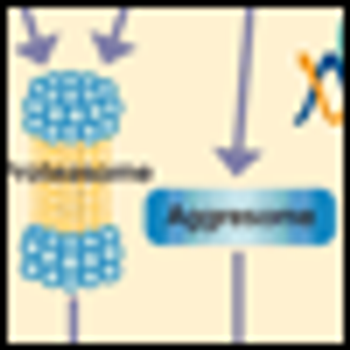
Closing out their discussion on relapsed/refractory multiple myeloma, experts consider adverse event management in patients receiving bispecifics followed by future directions in care.

Your AI-Trained Oncology Knowledge Connection!


Closing out their discussion on relapsed/refractory multiple myeloma, experts consider adverse event management in patients receiving bispecifics followed by future directions in care.

Comprehensive perspectives on the role of bispecific antibodies in the treatment of relapsed/refractory multiple myeloma.

A brief review of the use of CAR T-cell therapy in patients with relapsed/refractory multiple myeloma.

Moving to the last patient profile, expert panelists discuss a patient with triple-class refractory multiple myeloma managed with BCMA-targeting bispecific therapy.

Shared insight on the selection of therapy for patients with transplant-ineligible, newly diagnosed multiple myeloma and high-risk cytogenetics.

Expert panelists consider which regimen they would use, and for what duration, in the setting of transplant-ineligible, newly diagnosed multiple myeloma.

The panel moves on to review the profile of a patient with transplant-ineligible, newly diagnosed multiple myeloma managed with dara-Rd on the MAIA trial.

Before closing their discussion on transplant-eligible, newly diagnosed multiple myeloma, experts consider duration of therapy in this setting.

Panelists briefly review factors they use to select induction therapy for patients with transplant-eligible, newly diagnosed multiple myeloma.

Shared insight on approved quadruplet vs triplet induction regimens for patients with transplant-eligible, newly diagnosed multiple myeloma, evaluated in the GRIFFIN, MASTER and GMMG-HD7 trials.

Experts discuss a patient with transplant-eligible, newly diagnosed multiple myeloma managed with induction daratumumab-RVd and maintenance therapy.

The real promise of improving patient outcomes in IgD and IgE multiple myeloma lies in multi-drug combinations, next-generation agents, and immunotherapy.

Monoclonal gammopathy of undetermined significance (MGUS) is the most prevalent of the plasma cell dyscrasias and is characterized by a low level of production of serum monoclonal (M) protein (classically less than 3 g/dL).

Responses to treatment of relapsed and refractory multiple myeloma are characteristically short, and median survival is as brief as 6 months. Although prognostic factors in the context of relapsed and refractory disease require further characterization, high-risk patients include those with certain cytogenetic abnormalities, high β2-microglobulin, and low serum albumin.

In this issue of ONCOLOGY, Dingli and Rajkumar provide an expert review of novel therapies in multiple myeloma. As their work underscores, the rapid clinical development of the immunomodulatory drugs-specifically thalidomide (Thalomid) and lenalidomide (Revlimid), and the proteasome inhibitor bortezomib (Velcade)-has changed the therapeutic landscape of this disease, resulting in significant improvements in patient outcomes.[1]

Published: July 19th 2022 | Updated:

Published: July 6th 2022 | Updated:

Published: July 11th 2022 | Updated:

Published: July 11th 2022 | Updated:

Published: July 6th 2022 | Updated:

Published: June 14th 2011 | Updated: